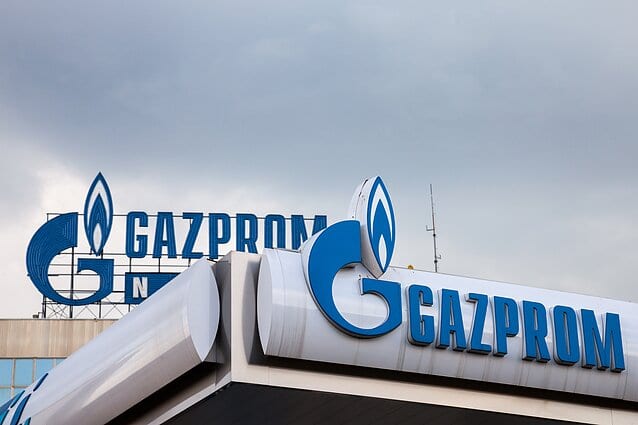The European Union faces disagreement over finalizing the Nord Stream 2 gas pipeline. Only 160 kilometers are left to be laid, but at the end of 2019 the Nord Stream 2 was sanctioned, which prevented the same name company Nord Stream 2 AG from completing its works by early 2020. So what aims does the project target to fulfill economic or political ones? The question has became an apple of discord among some countries of the European Union and the United States, Poland, Baltic states, and Ukraine.
It is implied that the Nord Stream 2, a gas pipeline with a capacity of 55 billion cubic meters of natural gas supply a year, will reach 1, 230 km length. It begins in Narva Bay in Russia and will end in Lubmin – on German land the gas will be distributed among “anywhere it is needed in the EU.”
In December 2019 the United States imposed sanctions for assisting in laying the Nord Stream 2. The restrictions were related to “vessels that are engaged in pipe-laying at depths of 100 feet or more below sea level for the construction of the Nord Stream 2 or TurkStream pipelines, or any successor projects to either pipeline,” as well as for foreign individuals that “have knowingly sold, leased, or provided the vessels for construction of either project or facilitated deceptive or structured transactions to provide such vessels.” As a result, Swiss contractor Allseas, that gave its biggest vessel Pioneering Spirit and Solitaire to lay the Nord Stream 2, stopped works, and the project was delayed for months. However, on the 6th of July Denmark’s Energy Agency permitted using ships with anchors – it demanded pipelaying vessels to be provided with self-positioning system – and, if nobody objects the decision in three weeks, the project will be completed with a help of Akademik Cherskiy Russian vessel and Fortuna ship with anchors.
Currently the controversies rose over the proposal of US senators to strengthen sanctions towards the Nord Stream 2. According to a new draft, insurance companies and any entities providing services for works on the Nord Stream 2, including port ones, will be sanctioned. The proposal is still to be approved by the US president. And in late June Germany claimed that sanctions violated its sovereignty, as well as European economic independence. The country is determined to complete the project, and some German politicians rise a question over sanctions in a response to American “extraterritorial” ones. Germany’s intentions are clear considering the fact that the gas transit via the Nord Stream 2 will be done with direct Germany’s operating. Using new pipeline Russia bypasses Ukrainian and Polish gas transit systems – as a result, these countries will loose their transit fees.
The pipeline is a joint project of German Wintershall Holding GmbH (10%), Uniper SE (10%), Royal Dutch Shell plc (10%), OMV AG (10%), ENGIE S.A. (10%), and Russian Gazprom that owns 50% of the project. Furthermore, Gazprom is a sole shareholder of Nord Stream 2 AG company that will maintain the pipeline. To refute a questionable theory of the benefits allegedly outweighing the risks, a few words should be said regarding activities of Gazprom.
Gazprom Space Systems, an entity providing satellite communication for broad range of establishments: “governmental institutions, broadcasting companies, Russian and international commercial service providers” in Europe, Middle East, Africa and Pacific Ocean. S.P. Korolev Rocket and Space corporation Energia – affiliated with Gazprom, cooperates with NASA, ESA, governmental Russian establishments, and not surprisingly, – with Russian state corporation Roskosmos. Energia was involved in the development of multinational spacecraft launch Sea Launch. Meanwhile, before 2010 the corporation’s share in the platform was 25% , the rest belonged to American Boeing, Norwegian and Ukrainian companies. In 2010 Energia became a 95% owner of the Sea Launch, and currently the primary owner of the platform is S7 AirSpace Corporation – totally Russian company that consumes the fuel of Gazprom’s subsidiary GazpromNeft-Aero. Gazprom is a founder of Gazprom-Media Holding that invests in TV (including satellite one) and radio broadcasting, online resources, advertising, and press. The broadcasting provided by Gazprom-Media covers Russia and the territories beyond the borders: North and South America, Europe, Australia, and post-Soviet states. Offices in Cyprus, Switzerland, Armenia, Hungary, Germany, Netherlands, Belarus, Great Britain – and the list of places mentioned here is not complete.
By means of Gazprom Russia has integrated into a wide variety of industries that are completely not related to the extraction of natural resources. Gazprom is a state owned company, 50% of which belongs to the government involved in a number of military conflicts in Europe, Middle East, and North Africa. Is the Nord Stream 2 a kind of economic project only?
Source: https://democratic-europe.eu/2020/07/13/gazproms-economic-expansion/

